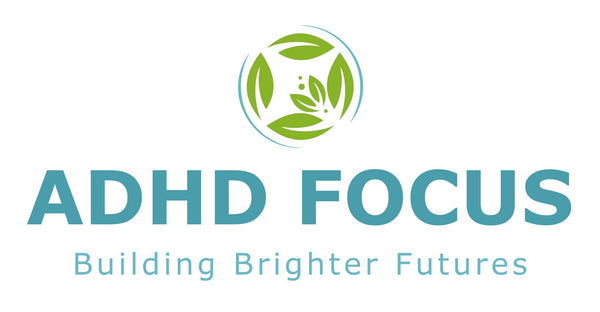
Are Children with ADHD at Greater Risk of Depression?
Share
When we think of ADHD in children, symptoms like restlessness, impulsivity, and trouble focusing usually come to mind. But there’s another layer that often goes unnoticed: depression. Research indicates that children with ADHD are more likely to experience depression than their peers - but what causes this increased risk?
Let’s start with a quick overview of each condition:
- ADHD (Attention-Deficit/Hyperactivity Disorder) is a neurodevelopmental disorder that affects focus, organisation, energy levels, and impulse control.
- Depression is more than feeling down - it’s a persistent state of low mood, lack of energy, and disinterest in daily activities.
In this article, we’ll cover:
- Why children with ADHD are more likely to develop depression.
- The emotional risk factors involved.
- How depression may present differently in kids with ADHD.
- What parents and caregivers can do to help.
Understanding this link can help you better support your child’s overall mental health - not just their academic performance or behaviour.

Why Children with ADHD Are at Greater Risk for Depression
Kids with ADHD face daily challenges that can be emotionally draining. Studies consistently show they’re more likely to develop depression - here’s why:
- School struggles: Difficulty sitting still, paying attention, or completing assignments often results in academic setbacks and constant correction, which can damage a child’s confidence and motivation.
- Social challenges: Impulsivity or inattentiveness may affect friendships, sometimes leading to social rejection or loneliness - both risk factors for depression.
- Low self-worth: Children who are often criticised or misunderstood may start to believe they’re “bad” or not good enough, fueling long-term emotional stress.
- Emotional dysregulation: Many kids with ADHD struggle to manage emotions, which can make everyday frustrations feel overwhelming - and if left unaddressed, this can develop into depression
Emotional Vulnerability: Risk Factors to Watch For
Several additional factors can make children with ADHD more emotionally vulnerable:
- Other mental health conditions: Anxiety, learning disorders, or behavioural issues often occur alongside ADHD, creating more stress and emotional strain.
- Stressful home life: A chaotic or unsupportive home environment can worsen both ADHD symptoms and emotional wellbeing.
- Lack of early intervention: Without proper diagnosis or support, children may silently struggle for years, increasing the risk of depression.
Being aware of these risks allows parents and caregivers to take early action.
Recognising Depression in Children with ADHD
Since ADHD and depression can share similar symptoms, identifying depression in a child with ADHD can be tricky. Still, there are warning signs to watch for:
- Frequent sadness or irritability
- Lack of interest in activities or friends
- Changes in sleep or appetite
- Low energy or fatigue
- Withdrawal from loved ones
- Expressions of hopelessness or worthlessness
These are not just “phases” - they may signal depression and should be taken seriously.
How You Can Help: Tools for Parents and Caregivers
Supporting a child with both ADHD and depression requires patience, structure, and the right resources. Here’s how you can make a difference:
- Foster open communication: Encourage your child to talk about their feelings without fear of judgment.
- Create consistent routines: Predictable daily schedules provide comfort and security.
- Celebrate their efforts: Focus on what your child is doing well - not just what they need to improve.
- Seek professional guidance: A therapist or paediatrician can assess your child’s needs and offer tailored support.
- Incorporate natural remedies (when appropriate): Feelgood Health offers natural products that may help support mood, focus, and emotional balance.
Recommended Natural Support from Feelgood Health
- Focus & Calm – Herbal support to improve focus and calmness in children.
- BrightSpark – A natural, non-addictive remedy for impulsivity and hyperactivity.
- MindSoothe Jr – Supports emotional stability and mood regulation.
Note: Natural remedies can be part of a holistic care plan but should not replace professional medical treatment.
FAQs
Q: What are the early signs of depression in children with ADHD?
Look for ongoing sadness, loss of interest in activities, irritability, low energy, and social withdrawal.
Q: Can natural remedies help?
Yes! Products like Focus & Calm, BrightSpark, and MindSoothe Jr may support attention, mood, and overall emotional wellbeing.
Q: When should I seek professional help?
If your child shows signs of persistent sadness, low self-esteem, or concerning changes in behaviour, it’s important to consult a healthcare provider.
Final Thoughts
Children with ADHD are more emotionally vulnerable — but with the right support, they can thrive. By understanding the link between ADHD and depression, parents and caregivers can respond with empathy and take early, proactive steps.
Whether through structured routines, open conversations, therapy, or natural support, a personalised approach can make a big impact on your child’s wellbeing.
Related Products
Related Products
- How to Make Your Home More ADHD-Friendly for Kids.
- Managing ADHD Emotional Outbursts: A Parent’s Toolkit.
- What is ADHD Burnout in Children?
If you have any question, please contact us or leave a comment below for FREE health advice. We always love hearing from you!

1 comment
I really need this combo for my son. He is struggling 😔